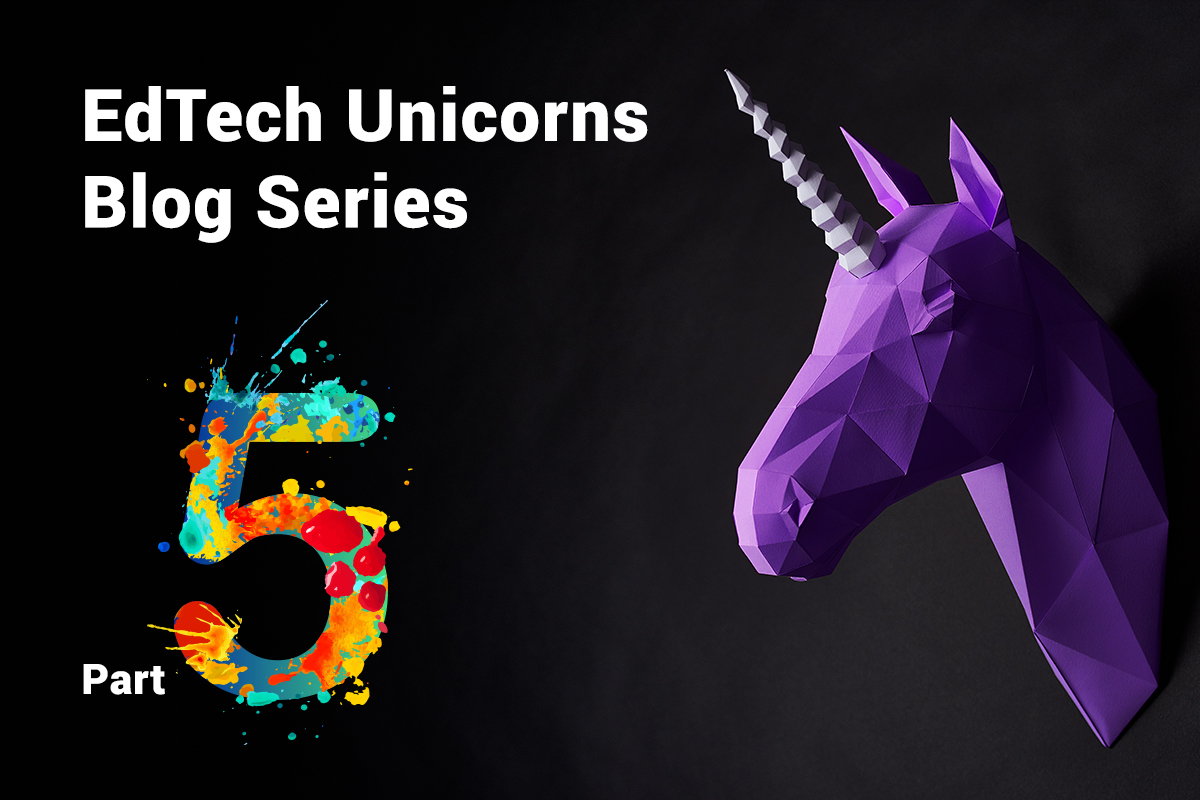What industry is it? What is it about?
Even though this is not a market/segment per se, in our analysis we have grouped Applyboard and Guild Education together. Originally Applyboard is categorized by HolonIQ in its EdTech Unicorn lists under “International Recruitment” and Guild Education under “Online Post Secondary/Employers.” ApplyBoard simplifies the study abroad search, application, and acceptance process by connecting international students, recruitment partners, and academic institutions in one platform. Guild Education, through its platform, manages education benefits for large companies, allowing employees to have access to a platform and advisers who direct them towards appropriate credentials from a “carefully curated” group of university and educational partners. Both companies founded in 2015, have platforms that connect end-users, students for Applyboard, and employees for GuildEducation, to educational opportunities according to their nationality, age, company, etc. Applyboard is open for students everywhere in the world looking for educational opportunities in North America, the UK, Australia, and New Zealand, whereas Guild Education is only available for employees from companies that are their customers.
Why are they needed – What is the pain point they are trying to solve?
As experienced by the companies that center on offering MOOCs, one of the main issues is to help the end-users decide what they are looking for, and guide them towards an adequate learning experience. The matchmaking EdTech unicorns help in the decision-making process before learning takes place. Looking for opportunities is not as simple as people often do not know where to look, or simply do not have guidance in this process. The matchmaking EdTech unicorns want to make this process simpler and cater to both the end-users as well as those companies that offer these educational opportunities. The platforms act as a Tinder for educational opportunities, with the difference that these platforms will not show you the opportunities that are “out of your league” and they will guide you on the right path on how to apply to these opportunities. Can matchmaking get any better?
The matchmaking EdTech unicorns help in the decision-making process before learning takes place. Looking for opportunities is not as simple as people often do not know where to look, or simply do not have guidance in this process.
As stated above, large universities sign up to the platforms in order to offer their programs and information on how to apply and end-users sign up to these to see, according to their characteristics, which opportunities apply to them. This match-making approach allows them to have a natural B2B and B2C monetization strategy.
These matchmaking paid engines with tips on how to apply can teach us the following:
- Use of machine learning and AI to help the matching process between end-users and courses/opportunities.
- Offering their software as a place where demand (users) sign up to look for the education opportunities available to them (courses/opportunities).
- The softwares are evolving into being specialized paid search engines for education. opportunities/courses.
- As matchmaking software, the only adaptive learning feature is that through machine learning and other data analysis, the software signals which opportunities are the best fit for the user.
- Partnerships can be created for both the end-user side to the provider side. As a matchmaking software the provider charges for both the user and the provider that wants to get their opportunities published
What can we learn from the matchmaking EdTech unicorns?
The matchmaking EdTech unicorns have made sure to exploit all selling opportunities by having both B2C and B2B monetization strategies. More than that, they make us realize that there’s a wider perspective in the learning process. They understood that before learning effectively, one of the main issues is knowing what I can learn and guiding me through these opportunities. As mentioned in the part that focused on MOOCs, EdTech is not only focusing on the right tools to learn but also heavily investing in making sure that end-users are matched with the right opportunities according to their position.
The matchmaking EdTech unicorns have made sure to exploit all selling opportunities by having both B2C and B2B monetization strategies.
Opportunities are there to be explored, but sometimes looking for opportunities can be like searching in a dark room without a torch. These platforms try to leverage the access to information, making a leveled playing field for international students/employees to understand what’s out there and what they need to do to make the most out of this opportunity. In basic economics, one of the simpler assumptions for elementary economic models is “perfect information” where all consumers know all information regarding prices and availability of a certain commodity from the supplier, these companies are trying to make this unrealistic assumption a bit more realistic, at least in the educational opportunities sector.



